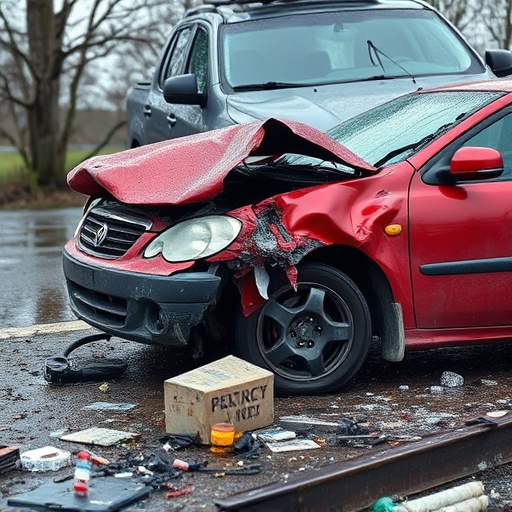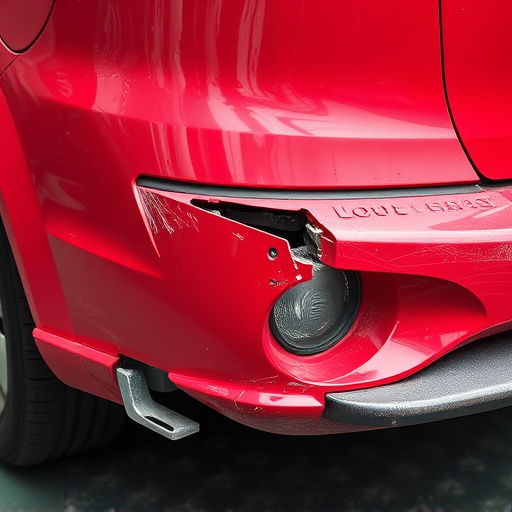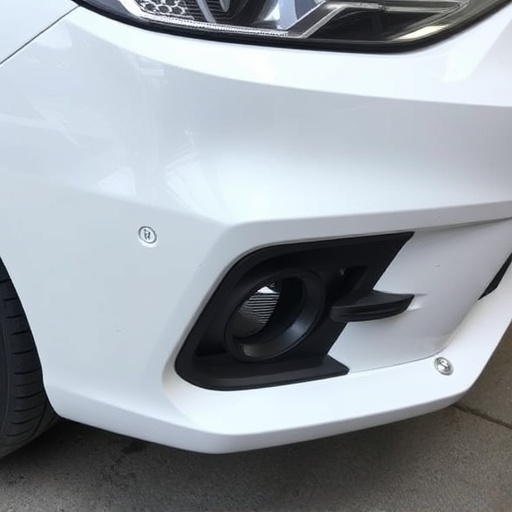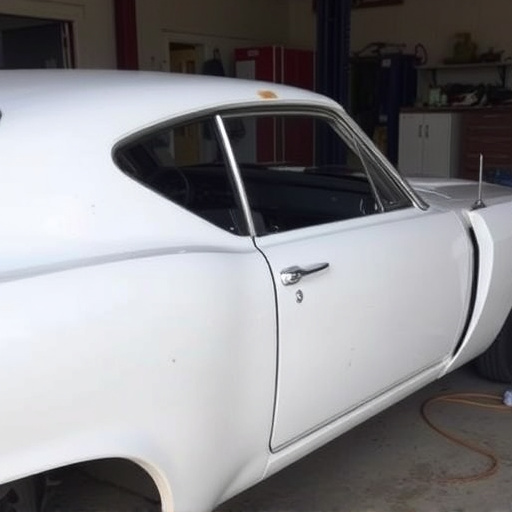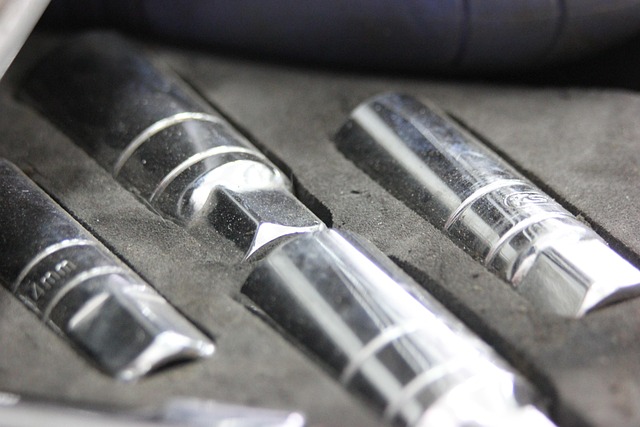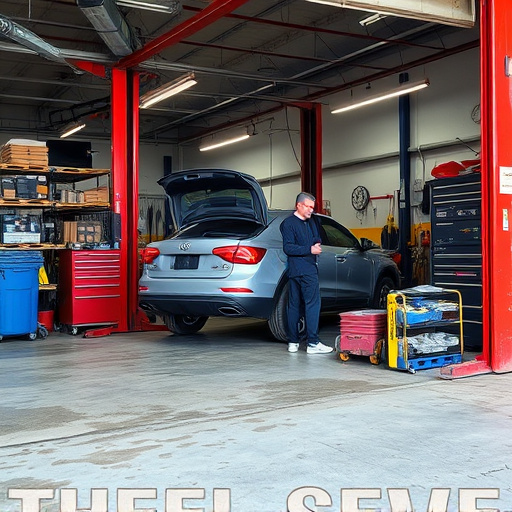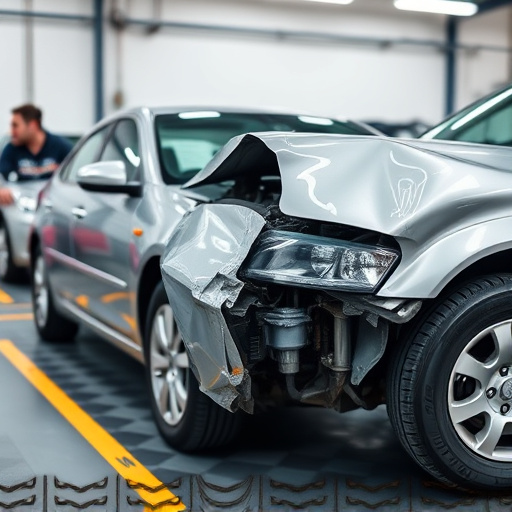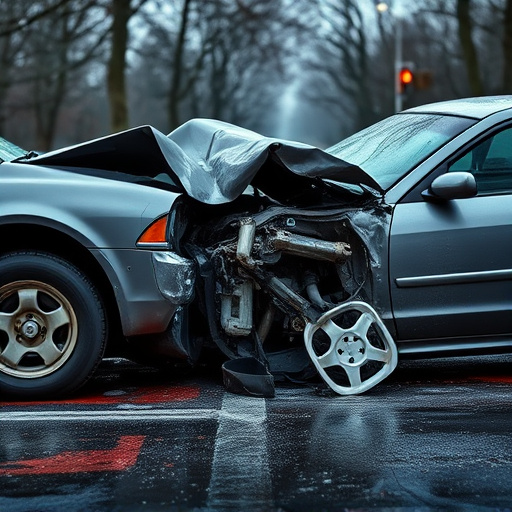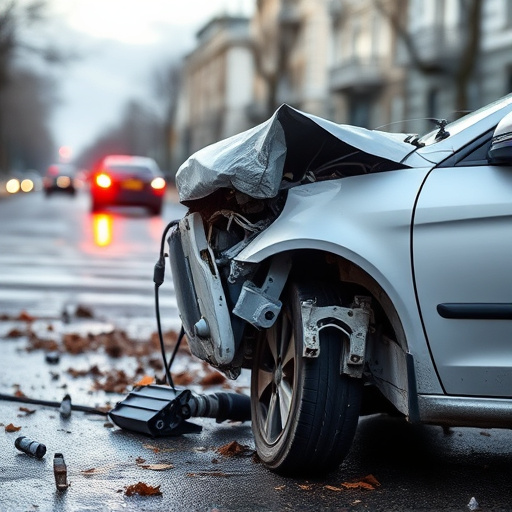After a collision, a brake system inspection is vital for both safety and vehicle condition. Signs of damaged pads include unusual noises, pedal pulsation, or visual changes like cracks or discoloration. Professional mechanics thoroughly check pads, rotors, calipers, and hydraulic lines to ensure optimal braking performance, prevent accidents, and guide subsequent autobody repairs.
After a crash, it’s crucial to ensure your vehicle’s safety systems are intact, especially the brake pads. Brake pads play a vital role in slowing and stopping your car. In a collision, they experience significant stress, potentially compromising their effectiveness. Recognizing signs of wear or damage is essential for road safety. This article explores the impact of collisions on brake pads and emphasizes the importance of a comprehensive brake system inspection to ensure your vehicle’s post-crash reliability.
- Understanding Brake Pads and Their Function After a Collision
- Signs Your Brake Pads May Be Compromised
- The Importance of a Comprehensive Brake System Inspection Post-Crash
Understanding Brake Pads and Their Function After a Collision

After a collision, understanding whether your brake pads are compromised is crucial for safety. The brake system plays a vital role in bringing a vehicle to a controlled stop, and its components must function optimally to ensure driver and passenger safety. Brake pads, situated between the rotors and calipers, are designed to dissipate heat and wear down over time through friction during braking. A collision can cause significant damage to these pads, leading to reduced performance or even failure if not addressed promptly.
During a crash, the impact can deform or fracture brake pads, altering their shape and composition. This disruption can result in inconsistent braking power, increased stopping distances, or even locking up of wheels. Regularly scheduled brake system inspections are essential post-collision to assess the health of pads, rotors, and calipers. Automotive repair services at a collision center often include detailed inspections to ensure that every part of the vehicle, including the brakes, is in top condition before reopening the roads.
Signs Your Brake Pads May Be Compromised

After a collision, it’s crucial to undergo a thorough brake system inspection. While many vehicle components can withstand minor fender benders, your brake pads are more susceptible to damage. Signs that your brake pads may be compromised include unusual noises during braking, such as squealing or grinding, which could indicate worn-out or damaged pads. Additionally, pulsating or pulsing in the pedal when applying brakes is another red flag.
Visual checks can also reveal issues; if you notice a significant change in the color of your brake pads or see cracks and chips on their surface, it’s a clear indication that they need to be replaced. Remember, proper functioning brakes are essential for your safety on the road. Just like considering bumper repair or tire services after a collision, don’t overlook the condition of your brake pads—they play a vital role in preventing accidents and ensuring a smooth, secure ride.
The Importance of a Comprehensive Brake System Inspection Post-Crash

After a collision, it’s imperative to undergo a thorough brake system inspection. A car crash can cause significant damage to various components, including the brakes. Even if your vehicle passed its initial safety check, a comprehensive examination is crucial. This is because hidden issues might have emerged, compromising your safety while driving.
A professional mechanic will assess not just the pads but also the rotors, calipers, and hydraulic lines. These parts work in harmony to ensure smooth braking. Any malfunction or wear and tear could lead to reduced stopping power or even sudden brake failures. Regular checks post-crash help identify these issues early on, allowing for prompt vehicle dent repair (if necessary) and ensuring your peace of mind on the road. Moreover, addressing problems with your brake system is vital for preventing further damage to your vehicle’s bodywork and facilitating efficient autobody repairs.
After a crash, it’s crucial to ensure your brake system is thoroughly inspected. While signs of compromised brake pads may be evident, such as abnormal noises or reduced braking power, a comprehensive brake system inspection post-collision is essential for safety. This includes examining not only the pads but also rotors, calipers, and other components to prevent future issues and guarantee optimal vehicle performance and driver confidence. A timely brake system inspection can identify potential problems early on, ensuring your peace of mind on the road.
